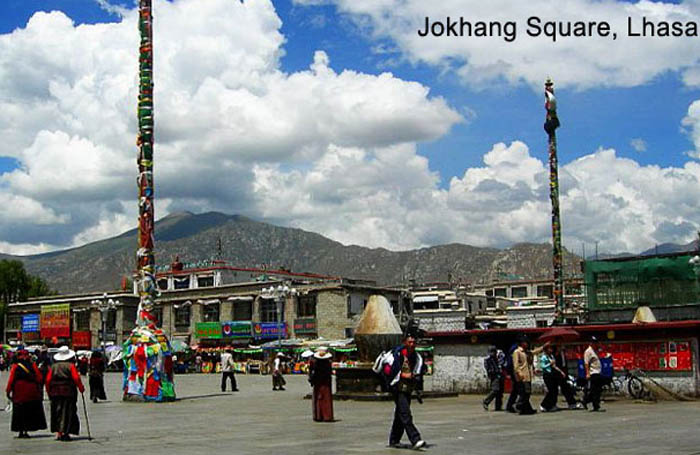 Dharamshala: Tibetans, from three different regions have come forward to talk about the situation in Tibet. One man, from Chamdo in Kham, spoke of the difficult situation faced by Tibetans under the increasing Chinese autocracy.
Dharamshala: Tibetans, from three different regions have come forward to talk about the situation in Tibet. One man, from Chamdo in Kham, spoke of the difficult situation faced by Tibetans under the increasing Chinese autocracy.
On July 15, a Tibetan from Chamdho county, eastern Tibet who did not want to give his name told The Tibet Post International (TPI) that the locals as well as monks are being denied access to various counties and provinces and being arrested without reason. Sometimes, when people are just walking on the road, the Chinese police subjects them to interrogations and physical inspections in a humiliating manner.
"According to me, as I have given this information to outsiders, I will be deemed a traitor and a criminal and my life could be in danger", he added.
Meanwhile, another Tibetan from Quing Hai province in Amdho explains that there are many difficulties in Tibet, however, one of the most alarming situations is being faced by schools. Tibetan schools have had their subjects changed to Chinese and thus are systematically losing their language and forms of communication. Tibetan students are finding it increasingly difficult to pass examinations not only because of the language change, but because of the fees as well, which is exorbitant and unaffordable, especially in High Schools.
In monasteries as well, the situation is worsening. Tibetan monks who have taken their vow since they were very young, and have matured to 18 years of age are sent back home where they are forced to live as regular people. This situation leads to them being unemployed with no sustainable skills to support themselves or their families. As they are no longer allowed to live in the monastery, life becomes very hard for them. Apart from this, those who are already 18 years of age, and wish to become monks must take permission from the Chinese government which is very difficult to obtain. Even though, monasteries allow the undertaking of the ascetic vow at any age, the Chinese bureaucratic procedures make it challenging for Tibetans to claim such a basic right and choice of life.
Also, another worrisome development that has been plaguing Tibetans, is the domestication of nomads that live in the grasslands and the mountains. The Chinese government's resettlement policy has been methodically confining the indigenous nomads to government housing systems where they are paid a paltry initial settlement of 1000 yuan and left to fend for themselves afterwards within the cramped housing settlements.
A Monk from Kirti Monastery, Nagba county came forward to say that since a few years there has been a gradual and concentrated increase in the number of army establishments around the monastery and nearby towns. The area is under constant surveillance, night and day. Monks who live in the monastery, have had their mobile phones confiscated by the Chinese govt. Along with this, the locals in the area have also lost their right to go anywhere and do anything without the consent and interference of the government-appointed army personnel.


![Tibet has a rich history as a sovereign nation until the 1950s when it was invaded by China. [Photo: File]](/images/stories/Pics-2024/March/Tibet-Nation-1940s.jpg#joomlaImage://local-images/stories/Pics-2024/March/Tibet-Nation-1940s.jpg?width=1489&height=878)















